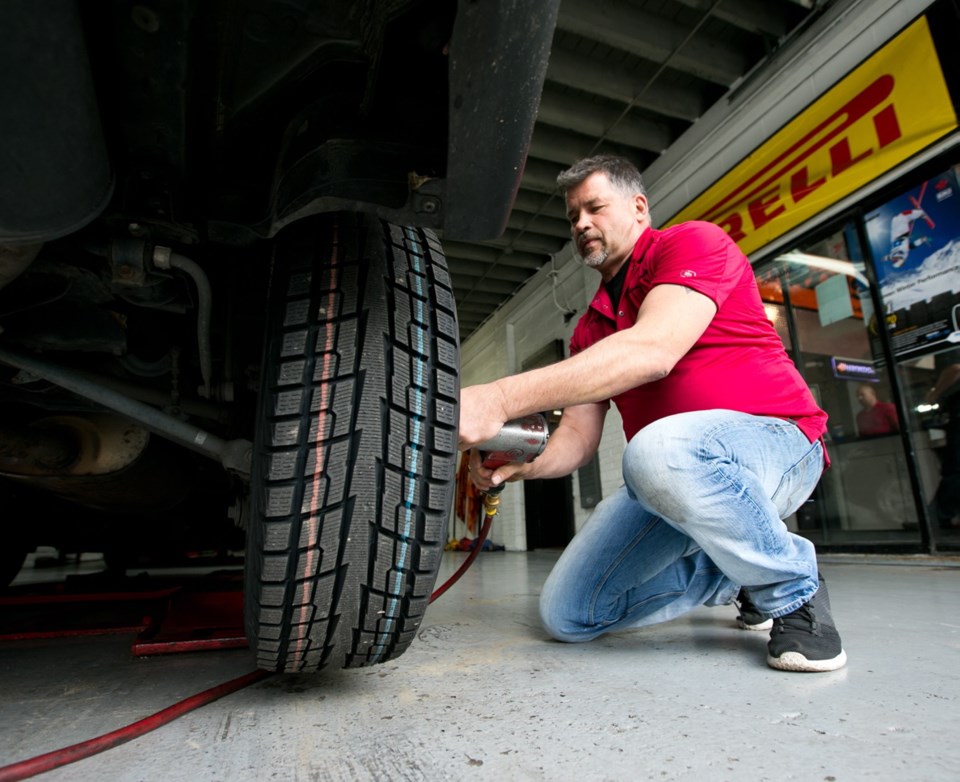Victoria tire seller Kevin Jensen has noticed two changes recently when it comes to winter driving: less snow and safer drivers.
Jensen, a 22-year owner of Big O Tires, said despite the lack of snowfall in recent years, Victorians are buying more winter tires than decades ago.
“Even though it’s been warmer, we’ve sold more winter tires in the last couple years than we did in the last 20,” he said. “The modern driver is just more conscientious about safety.”
That conscientiousness could also be linked to B.C. Ministry of Transportation regulations that came into effect a year ago requiring appropriate winter tires on highways from Oct. 1 to March 31.
The rules require everyone who drives on B.C. highways to have winter or all-season tires. In both cases, the depth of tread must be a minimum of 3.5 mm. A violation can result in a fine of $109.
The winter-tire rule was first enacted in 2014 and has since been altered to include all-season tires, providing they have good tread depth.
According to Jensen, tires come in four weather grades: summer, all-season, all-weather and winter or snow tires.
The U.S. Automobile Protection Association says a big difference between the summer- and all-season tire category and the all-weather, snow and winter variety, besides the tread, is the softness of the rubber.
Softer rubber means a better grip, especially if roads are icy. Summer and all-season tires are made with rubber compounds that harden up in the cold, making them less efficient.
Police are all in favour of drivers paying extra attention to safe tires.
But don’t look for them to be pulling over cars and checking their treads with a tire gauge.
Staff Sgt. Jim Anderson of the CRD Integrated Road Safety Unit said when police officers pull over a car for speeding, they routinely complete a quick walk around the vehicle, conducting a visual safety check.
Likewise, during check stops for impaired drivers, officers may glance at the tires, and can issue a ticket for bald or inappropriate tires.
If a snowfall has made a highway treacherous, police officers might pull over motorists and advise them to turn around, especially if their tires are inappropriate.
“The best-case scenario is to have the proper winter tires,” said Anderson. “They make a big difference.
“You never know what the winter will bring and to be unprepared means you are going to take a chance.”
Anderson said police also inspect tires when they are investigating collisions, since poor or inappropriate tires can be a contributing factor.
ICBC spokesman Adam Grossman said while nobody will lose coverage for the wrong tires, when it comes time to assign a percentage of blame for an accident, poor tires may earn a driver a larger black mark.
“It won’t put you in breach of your coverage,” he said. “But it could play a role in how we assess your liability in a crash, how much you are at fault.”
Grossman compared having inappropriate tires with venturing out in a rainstorm with worn-down windshield wipers.



